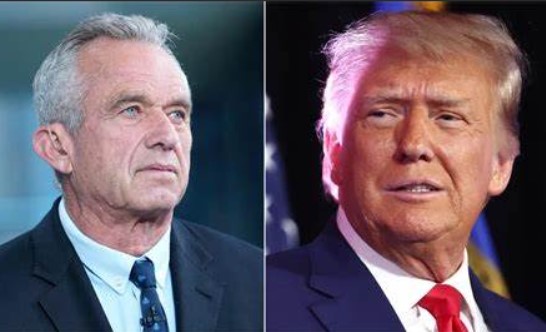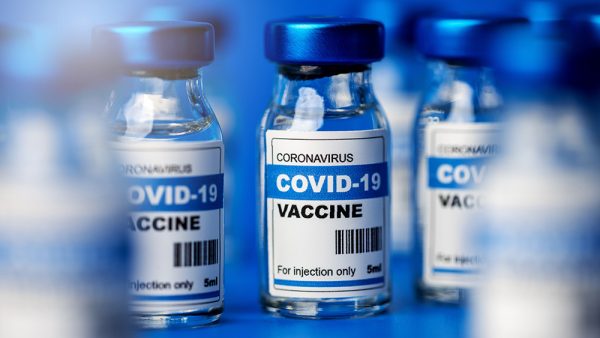 Parler
Parler Gab
Gab
- The WHO’s legally binding International Treaty on Pandemic Prevention, Preparedness and Response aims to standardize global health measures for future crises, promoting data sharing, vaccine equity and outbreak surveillance. Critics argue it risks undermining national sovereignty and empowering pharmaceutical corporations.
- The treaty requires nations to allocate 10% of vaccine/treatment production to the WHO and another 10% at subsidized rates for poorer countries. Skeptics view this as encroachment on national autonomy, while supporters call it a fair compromise for equitable access.
- The treaty faces backlash over ties to Bill Gates and Big Pharma, with concerns that its Pathogen Access and Benefit-Sharing System (PABS) could prioritize private profits over public health. Critics also highlight the WHO’s lack of enforcement mechanisms to ensure compliance.
- The U.S. has opted not to sign despite rejoining the WHO under Biden, signaling a retreat from global health leadership. Meanwhile, countries like China and Brazil are gaining influence in pandemic governance, though China’s transparency issues raise doubts.
- The treaty is criticized by both left-wing groups (for failing to curb corporate power) and libertarians (for international overreach). Its success hinges on balancing pandemic readiness with sovereignty, amid widespread distrust of global institutions.
The treaty’s objectives and growing backlash
Approved after three years of negotiations, the "International Treaty on Pandemic Prevention, Preparedness and Response" mandates member states to enhance data sharing, strengthen surveillance systems and collaborate on vaccine and drug development. Revolving around equitable access to medical resources and early outbreak detection, the treaty seeks to avoid the inequities of the 2020–2023 pandemic, when wealthier nations cornered vaccines—leaving poorer countries vulnerable. Yet, critics emphasize the treaty’s problematic ties to entities like Microsoft co-founder Bill Gates, a major funder of global health initiatives, and pharmaceutical companies influencing its terms. The treaty’s proposed Pathogen Access and Benefit-Sharing System (PABS), designed to accelerate drug development by streamlining genetic data exchange, alarms privacy advocates. They argue it risks ceding control of medical research to private corporations, exacerbating profit-driven healthcare. WHO Director-General Tedros Adhanom Ghebreyesus framed the treaty as a "significant milestone" for multilateralism, citing it as proof nations can coalesce despite geopolitical divides. However, global health consultant Nina Schwalbe acknowledged the deal lacked muscle, with no enforcement mechanisms to ensure compliance during crises. "There’s no way to compel nations to share, which means history could repeat itself," she warned, referencing the U.S.’s vaccine hoarding during the 2020 crisis.Sovereignty and enforcement: The deal’s Achilles’ heel
Central to the backlash is the treaty’s demand that countries relinquish 10% of vaccine and treatment manufacturing capacity to the WHO, with an additional 10% allocated at subsidized rates for poor regions. While intended to ensure equitable access, critics argue this infringes on national production autonomy. Anne-Claire Amprou, France’s global health ambassador, defended the compromise as "a fair give-and-take," but African and Latin American delegates revealed tensions over unequal power dynamics. Alexandra Finch of Georgetown University underscored concerns about financial obligations, noting developing nations must enact pandemic plans "subject to available resources" — a loophole permitting underfunded countries to ignore them. Meanwhile, the treaty’s reliance on "mutually agreed" technology sharing between nations leaves gaps for pharmaceutical firms to resist transparency. Michelle Childs of DNDi pointed to clauses allowing public health authorities to mandate open-source research for pandemic-related products. Still, absent strict penalties for noncompliance, the system’s success hinges on goodwill—an uncertain prospect in an era of global competition. The treaty’s proponents frame these terms as pragmatic steps, but opponents like health freedom advocates decry its vagueness. "It’s one-sided," said a source, calling attention to the WHO’s opaque ties with funders like Gates. They view the pact as a Trojan horse for corporate interests, enhancing Big Pharma’s influence in low-income nations.U.S. withdrawal and the shift in global health leadership
The treaty’s ratification marks a pivotal moment in global health governance following the U.S.’s withdrawal from the WHO under President Trump. Despite rejoining under Biden, the U.S. will not sign the accord, signaling a retreat from global health leadership. Schwalbe called this "unfortunate," as pathogens respect no borders. Neil Vora of the Preventing Pandemics at the Source Coalition emphasized that the absence of the U.S. — the world’s largest biopharma producer — weakens collective readiness against zoonotic threats like avian flu or Marburg virus. The pact’s success also underscores a rising power dynamic: nations like Brazil, China and G7 states now dominate pandemic planning. Ventura praised the move as a rejection of "U.S.-centric" approaches, noting the treaty adopts a holistic strategy to prevent pathogen spillover from animals — a shift she deems critical. However, China’s historically opaque response to outbreaks (as with SARS and the 2020 pandemic) complicates its pledge to be "more forthcoming about outbreaks."A bipartisan Frankenstein
Critics on both left and right decry the treaty as an overreach. While left-wing activists argue it fails to democratize vaccine access or rein in corporate power, libertarian groups see it as a conduit for international "overreach." The debate mirrors broader discontent with institutions like the WHO, accused of politicizing health crises and sidelining smaller nations’ needs.Pandemic readiness vs. sovereignty — A fragile balance
As nations prepare to formalize the treaty at the World Health Assembly in May, the stakes remain high. Its proponents view it as a lifeline in an age of multiplying epidemics, while skeptics warn of hidden costs to autonomy. The accord’s legacy may depend on whether its idealistic framework can enforce cooperation — or if its flaws will undermine the very goals of global health equity. Vora sees the treaty as a "landmark," stressing that any prevention step is better than none. Still, he admits: "We’re starting from a baseline of distrust." For now, the world holds its breath — watching whether multilateralism can triumph over nationalism, or if the pandemic treaty becomes another casualty in the struggle between public health and power. Sources include: TheNationalPulse.com NYTimes.com BBC.comRFK Jr. leads FDA crackdown on synthetic dyes in U.S. food supply amid health concerns
By Willow Tohi // Share
Rethinking the nexus of science, technology and governance: Murray Rothbard’s radical vision
By Belle Carter // Share
Eerie white clots revealed: mRNA vaccines spawning global prion crisis, scientists warn
By Lance D Johnson // Share
Justice Department to enforce Trump’s ban on gender transition procedures for minors
By Laura Harris // Share
Governments continue to obscure COVID-19 vaccine data amid rising concerns over excess deaths
By patricklewis // Share
Tech giant Microsoft backs EXTINCTION with its support of carbon capture programs
By ramontomeydw // Share
Germany to resume arms exports to Israel despite repeated ceasefire violations
By isabelle // Share










